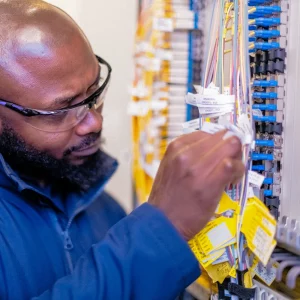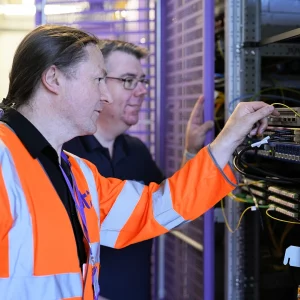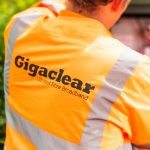Sponsored Links
EU Digital Agenda Tackles Superfast Broadband and Moots Website Blocks
Posted: 19th May, 2010 By: MarkJ
 The European Commission (EC) has today set out its Digital Agenda, an action plan designed to boost Europe's prosperity and well-being. The agenda promises, among many other things, to help stimulate the music download business, bring basic broadband to all Europeans by 2013 and superfast 30-100Mbps services by 2020.
The European Commission (EC) has today set out its Digital Agenda, an action plan designed to boost Europe's prosperity and well-being. The agenda promises, among many other things, to help stimulate the music download business, bring basic broadband to all Europeans by 2013 and superfast 30-100Mbps services by 2020.The EC hopes that its measures will also increase regular internet use from 60% to 75% by 2015 and from 41% to 60% for disadvantaged people. It will also seek to halve the proportion of the population that has never used the internet by 2015 (to 15%). In 2009, 30% of individuals aged 16-74 had never used the internet.
Fast and ultra fast internet accessIt's understood that the EC will begin laying out a common framework for actions at EU and Member State level from this year. This will explore how to attract capital for broadband investment through credit enhancement, an ambitious European Spectrum Policy Programme to boost Wireless / Mobile Broadband and a Recommendation to encourage investment in superfast Next Generation Access (NGA) networks.
We need very fast internet for the economy to grow strongly and to create jobs and prosperity, and to ensure citizens can access the content and services they want.
Europe needs widely available and competitively-priced fast and ultra fast internet access. The EU aims to bring basic broadband to all Europeans by 2013 and to ensure that, by 2020, all Europeans have access to much higher internet speeds of above 30Mbps and 50% or more of European households subscribe to internet access above 100Mbps.
To reach these ambitious targets it is necessary to develop a comprehensive policy, based on a mix of technologies, focusing on two parallel goals: on the one hand, to guarantee universal broadband coverage (combining fixed and wireless) with internet speeds gradually increasing up to 30 Mbps and above.
On the other hand, the goal is, over time, to foster the deployment and take-up of next generation access networks (NGA) in a large part of the EU, allowing ultra fast internet connections above 100Mbps.
The EU's target is roughly in line with the UK, which hopes to bring superfast broadband services within reach of "most" people in the country by 2017. The Conservative dominated government has previously touted a top speed of 100Mbps as their target, while their coalition partners (LibDems) prefer 40Mbps+. Both are similar to the EU's goal.
The EC's Vice-President for the Digital Agenda, Neelie Kroes, said:
"We must put the interests of Europe's citizens and businesses at the forefront of the digital revolution and so maximise the potential of Information and Communications Technologies (ICTs) to advance job creation, sustainability and social inclusion.
The ambitious strategy set out today shows clearly where we need to focus our efforts in the years to come. To fully realise the potential of Europe's digital future we need the full commitment of Member States, the ICT sector and other vital economic players."
"We must put the interests of Europe's citizens and businesses at the forefront of the digital revolution and so maximise the potential of Information and Communications Technologies (ICTs) to advance job creation, sustainability and social inclusion.
The ambitious strategy set out today shows clearly where we need to focus our efforts in the years to come. To fully realise the potential of Europe's digital future we need the full commitment of Member States, the ICT sector and other vital economic players."
In addition the agenda will also seek to stimulate the music download business by simplifying copyright clearance, management and licensing. It even acknowledges the importance of Net Neutrality for freedom of expression.
However it includes some very ambiguous wording in support of Internet blocking and filtering. This largely refers to the action of removing child abuse content from the internet, although "preventing viewing" could refer to network-wide blocking of websites or only to filters installed and controlled by end-users.
Search ISP News
Search ISP Listings
Search ISP Reviews
Latest UK ISP News








Cheap BIG ISPs for 100Mbps+
150,000+ Customers | View More ISPs
Cheapest ISPs for 100Mbps+
Modest Availability | View More ISPs
Latest UK ISP News
Helpful ISP Guides and Tips
Sponsored Links
The Top 15 Category Tags
- FTTP (6832)
- BT (3895)
- Politics (3086)
- Business (2779)
- Openreach (2673)
- Building Digital UK (2519)
- Mobile Broadband (2490)
- FTTC (2145)
- Statistics (2138)
- 4G (2106)
- Virgin Media (2034)
- Ofcom Regulation (1785)
- 5G (1748)
- Fibre Optic (1607)
- Wireless Internet (1601)
Sponsored
Copyright © 1999 to Present - ISPreview.co.uk - All Rights Reserved - Terms , Privacy and Cookie Policy , Links , Website Rules































